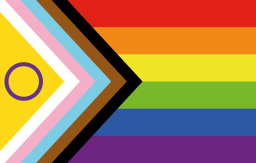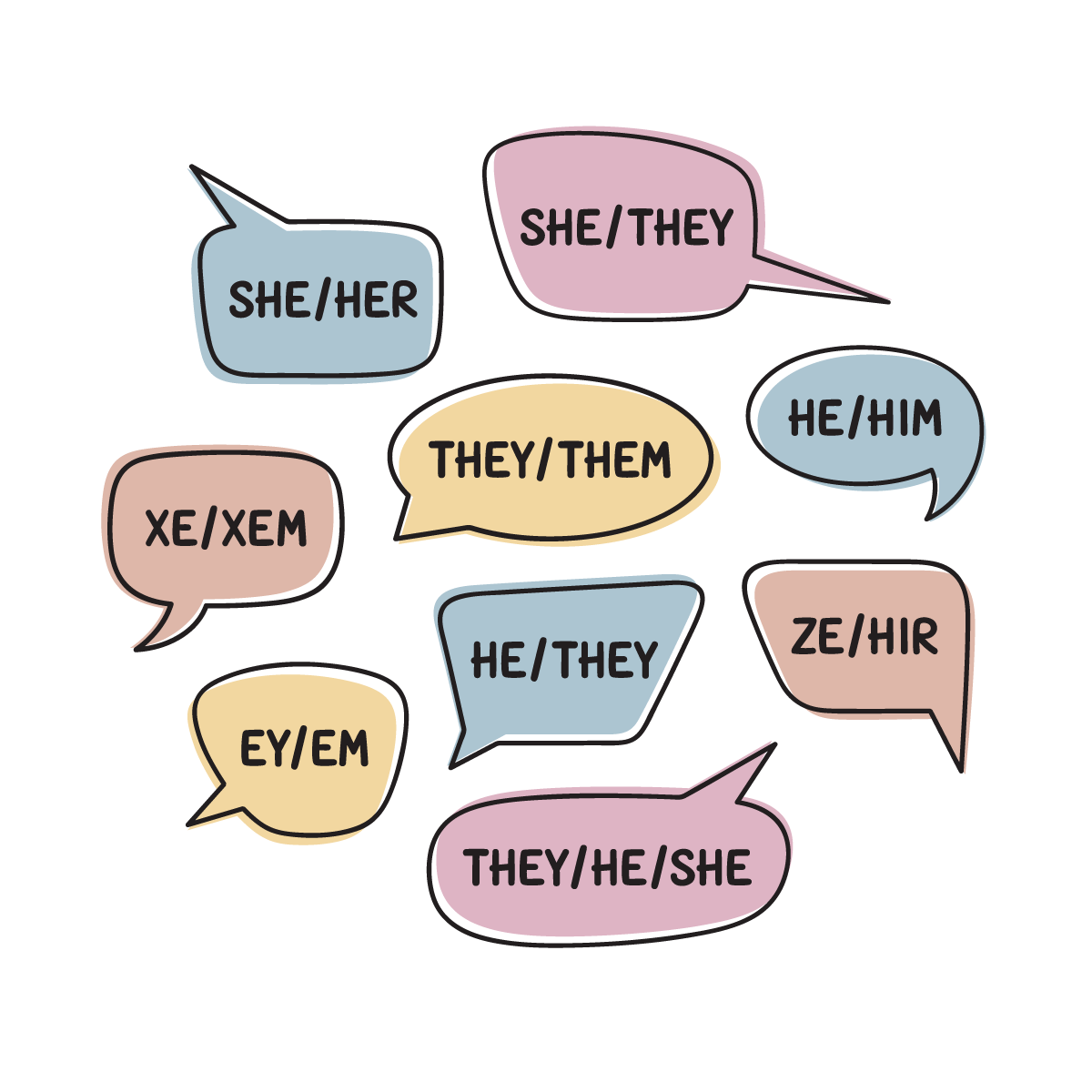Language & Terms
Why Inclusive SGD+ Language Matters in Healthcare
Using accurate and affirming terminology:
- Validates the identities and experiences of 2SLGBTQIA+ patients
- Reduces stigma, discrimination and barriers to care
- Builds trust and encourages open, respectful communication
- Supports safer, more inclusive healthcare environments for all
Language plays a critical role in patient care. As terminology evolves, it’s essential for healthcare professionals to stay informed, listen to 2SLGBTQIA+ voices, and respect each individual’s identity. By embracing inclusive language, providers help ensure that every patient feels seen, heard and valued - leading to better health outcomes and stronger therapeutic relationships.
As language constantly evolves, it is understandable that new terms can arise that we may not be familiar with. Asking a patient to elaborate or explain what an unfamiliar term means to them can ensure we have a shared understanding.
Below are some recommended links to information about outdated and updated terms to use to promote respectful and inclusive verbal and written communication.

About the Acronym
The letters in 2SLGBTQIA+ stand for Two-Spirit, lesbian, gay, bisexual, trans, queer, intersex, asexual + all other identities.
In Canada, 2S was moved from the end of the acronym to the beginning. This was done to acknowledge that Two-Spirit Indigenous people were the first sexual and gender diverse people in North America and also to demonstrate solidarity in this time of Truth and Reconciliation.
There are many definitions and understandings of Two-Spirit, and each is nation specific. Two-Spirit is an identity that some Indigenous people hold, but not all queer Indigenous people identify as 2S. This is an identity that belongs solely to Indigenous people, white settlers cannot claim this identity. Indigenous and Two-Spirit people are the only ones who can educate on what it means to be Two-Spirit.
SGD
We use the term Sexual and Gender Diversity in Cancer Care (SGDc) to include all members of 2SLGBTQIA+ communities. In health care research, the term sexual and gender minorities (SGM) is used most often. Our working group at the Princess Margaret felt “minority” was not a term which encompasses the incredible strengths and power of our diverse communities. We decided to apply the term Sexual and Gender Diversity, as it is the term used at many universities in their student diversity centres. Although it is not a term that is widely known by all at this time, we believe it is inclusive, positive and easier to say than 2SLGBTQIA+.
Chosen Family
"Chosen family" is a term used in SGD communities to describe family groups formed by choice, rather than biological ties. Chosen families are an important part of a patient's essential care partners team, especially for patients who may have experienced rejection or who are not connected to their families of origin. Some patients have both family of origin families and chosen families.
At the Princess Margaret, we celebrate the strong and resilient networks that SGD communities and their chosen families have built. We want them to feel welcome, included and involved in your care.
Learn more about chosen family
Chosen family can help with activities such as attending medical appointments, reminders to take medication, help with grocery shopping and meal prep, and keeping you company. Chosen family can provide much needed emotional support through your cancer treatment and recovery.
Support from family, chosen family and friends can make a big difference. Having support can help you:
- Navigate some of the unique barriers SGDc patients may experience
- Feel less isolated or alone
- Advocate for yourself or think of questions for your medical team
- Find people to talk to about feelings and concerns
- Reduce stress, depression and anxiety
Pronouns

Staff, patients and families are encouraged to introduce themselves with their pronouns. For example, "My name is Sami and my pronouns are she and her". Pronouns cannot be determined by appearance or someone's name. Pronouns may not be obvious, or correctly assumed. Sharing pronouns helps the Princess Margaret create a welcoming and inclusive environment for all patients, families and staff.
Referring to people by the pronouns that they pick for themselves is a basic sign of respect. Being referred to by the wrong pronouns can be demoralizing. Trans people may not feel that their name given at birth affirms their gender identity. Trans people may choose a different name that is neutral or better aligned with their gender identity. Whether a person has legally changed their name or not, it is important to address people by their correct name, which is the name they choose for themself. It is important to know why pronouns matter, how to use them respectfully and how to foster inclusive language and communities.
Learn more about pronouns
Pronouns are words used to refer to a person other than by their name. Pronouns can imply a male or female gender such as HE or SHE.
THEY, ZE and SIE, or ZIE and HIR are gender neutral pronouns, often used by people who do not identify as he or she, or who identify as an alternative gender such as genderqueer, gender nonconforming, no gender or a-gender. We often use neutral pronouns without even thinking, such as "Someone forgot their gloves. I hope they come back for them". It can take some practice to use gender neutral pronouns until it becomes automatic in all situations.
How to Properly Use Pronouns
Everyone has the right to choose the pronouns that feel appropriate for them. Pronouns are not negotiable or a debate.
Use the pronouns that someone requests. Using someone's pronouns correctly is a sign of respect. You do not have to be an expert on transgender people or familiar with the meaning of all terms to use the pronouns that someone requests.
Pronouns are how a person identifies. Pronouns are not a preference. It is best to ask "What are your pronouns" instead of "What are your preferred pronouns".
Pronouns Resources
Videos
Posters
Websites
